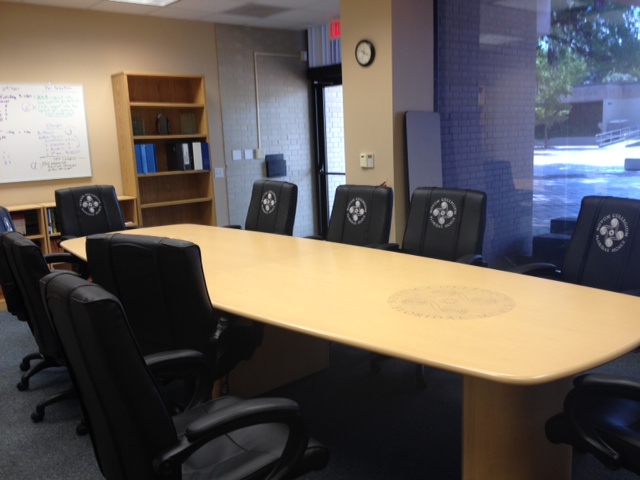
 In an attempt to improve the community at large, Student Affairs has overseen more than 80 administrative and informal hearings each semester. Ranging from room violations during inspections to Title IX cases, Campus Life Coordinators Vanessa Van Dyke and Meghan Walde hope that these hearings will spark communication between Residential Life and students about how to address harmful behavior on campus.
In an attempt to improve the community at large, Student Affairs has overseen more than 80 administrative and informal hearings each semester. Ranging from room violations during inspections to Title IX cases, Campus Life Coordinators Vanessa Van Dyke and Meghan Walde hope that these hearings will spark communication between Residential Life and students about how to address harmful behavior on campus.
“Some goals that we try to do when working with students and our interactions is that we try to be consistent, we try to be reasonable, we try to be just and fair and develop through everything, and that’s really what me and [Vanessa Van Dyke] have been keyed in on,” Walde said. “We consider the whole student and try to make our sanctions educational. We try to take time to really get to know the student. We don’t just have a quick interaction and come to a conclusion based on that one interaction, we try to ask the right questions, we have follow-up meetings, and really try to make sure that we get to the root of the story of the case. We really have taken time to write that and have it be consistent in everything that we do.”
Informal and administrative hearings are divided into three tiers based on the severity of the violation. The lower level (of which there are two types) consists of both informal and administrative hearings that serve only to gather information to see if the case will advance anywhere. The middle level entails a community board hearing to access the violation and determine whether or not a sanction should take place. Finally, the upper level, reserved usually for Title IX cases and the appeal process, is handled by Dean of Students Tracy Murry and Associate Dean for Student Affairs Mark Stier. Walde and Van Dyke noted that drug and alcohol violations are one of the more common cases that make it past the lower level stage. The distinct difference between informal and administrative hearings is that an informal hearing is merely a conversation between the student and CLC to address a possible violation, whereas an administrative hearing only takes place if there is proof that such an event has occurred.
“It doesn’t mean that it will lead to sanctions – but it could – but that’s kind of why that’s there. Informal hearings are there for lower level violations, like candles, guest policy, leaving a key in the door, those kinds of smaller things,” Van Dyke explained. “Administrative hearings are for higher level violations and it basically means that we have a little bit more evidence like a police report or an information report which means that a student did X, Y and Z and that’s the difference between the two. Typically when we start hearings we start with an informal conversation like: ‘So Colt, how’s life? How’s living in B Dorm? How are you getting along with your roommates?’ The importance of that is to put the student at ease. We don’t want the student to be scared or freaking out when they come into our office. We want to establish a relationship with the student.”
Sanctions vary per case. Students who are found responsible for a violation, depending on the circumstances, may find themselves having to do an educational project or, in extreme cases, may face probation or suspension from school. Van Dyke remarked that students having informal hearings following the hosting of events on campus is fairly common.
“Also related to cleaning up the space, did you abide by the policy that’s set in place when it comes to an event? If you said that it was going to be substance free and then it wasn’t, we probably need to have a conversation,” Van Dyke said.
On March 16, two new features regarding judicials will be available online. Walde remarked that next Monday, students would be able to access information regarding the judicial process from the school website to help bring clarity to the process. Additionally, a new online reporting system will be available online to the entire student body. Previously limited only to staff members and resident advisers, students will be able to fill out a virtual form to report policy violations and crimes that may take place on campus. The program, called Maxient, will allow students to report instances of emotional issues, disruptive behavior, sexual assault, and drug and alcohol addiction in themselves or those around them. The intention is to give students more options when it comes to reporting troubling behavior and spark conversation between Novocollegians and Student Affairs.
“It’s about making sure our campus is a safe and welcoming environment,” Van Dyke said. “I don’t think that bigger picture is seen by the students, and I can understand that. Judicials can come off as very scary, especially if you don’t understand our intention behind it, but we just want to make a safe and welcoming campus and make sure that students are learning and growing.”
